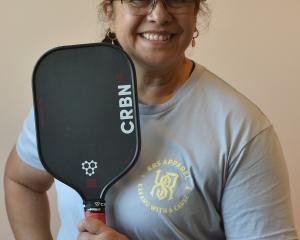
More than 60 sports were on offer for various age groups, and more than 4500 athletes lined up at the games.
Masters Games athletes came from all round the world, though the vast majority of entrants came from New Zealand.
Games manager Vicki Kestila said the games had gone very well.
"We are really happy how the games have turned out. Everyone seemed really happy and enjoyed themselves," she said.
"The best thing was we had a few dozen more [competitors] than in 2016. Though that may not sound like a lot, it reverses the decreases that we have been having."
The games attracted about 8000 competitors at their peak, more than decade ago, but attendance has been falling steadily since then.
Kestila said many events had proved popular and there were a lot of returning athletes.
"We had 16 teams at the ice hockey, the most we’ve ever had, and the dance sports grew. A lot of our runs we organised proved popular. The netball had more competitive players in it than social, which I think is great.
"Even the new sports that we introduced, the stadium stairs challenge, the walking netball, has got good support. It is always hard for these new sports as they don’t have the people coming back from the last games."
She said a good marketing campaign had drawn more competitors and there was also a real spin-off from Auckland hosting the World Masters Games last year.
There would be a debrief and a report would be given to the Dunedin City Council in due course, but for the time being, it was time for a rest for staff.
The games are set to go to Whanganui next year for their 30th anniversary.
The DCC has a contract to hold the games every two years until 2036.











